It's an absolutely glorious Sunday morning in my part of the world (Alberta, Canada). And I'm sipping coffee, listening to the Gipsy Kings and posting my review of
The Truman Show, for whatever that's worth:

Those words ("You never had a camera in my head"), I think, capture the essence of
The Truman Show best. There’s much in the world that can be controlled, but controlling what someone thinks and, maybe more importantly, feels is not so easy.
For me, this is one of the best movies of the 1990’s, and one of my favourite movies, period. Now, with the recent release of it in a special edition, I have the DVD I had been wanting – better image, informative features.
Slightly preceding the current glut of reality TV shows, the film’s concept seems simple enough, though perhaps less clever now than when it first appeared, before our reality TV world.
While the concept may seem simple – a movie about a guy whose entire life is broadcast live on television – imagine how you would execute that and make it interesting. It comes across more like a clever notion on paper, but the kind of thing that could lead you into a cinematic fiasco.
But between Andrew Niccols’ script, Peter Weir’s direction and some great casting, it works brilliantly.
Jim Carrey is Truman Burbank. His life , from birth, has been broadcast live to the world (unbeknownst to him). He lives in a town called Seahaven – always has, he’s never left – but what he doesn’t know is Seahaven is a television set in California, not a town on the Florida coast. He lives in a not-quite-perfectly controlled world.
"We accept the reality of the world with which we are presented," says Christoff (Ed Harris), the show’s creator and mastermind.
But as much as Christoff controls Truman’s world, he can’t control everything – including Truman.
There are small errors in Truman’s world and they might go unnoticed by him except the life scripted for him is not the one he would live. The more the show’s creator, actors and crew try to steer Truman and keep him on script, the more he resists.
And so Truman embarks on discovering his world, though that’s not his initial motivation.
As mentioned in the special features, Peter Weir made one change to the script that was bang on the money. Originally set in New York, and a darker film, Weir understood that for people to watch such a show (not the movie, but in the script’s world,
The Truman Show), it would need to be lighter, more comforting.
So the movie is set in Seahaven, a somewhat heightened reality. It’s roots are more in the world of 1950’s television than the real world, though not to such an extent that it lacks credibility.
Another great notion in the film’s making was the casting of Carrey. He is perfect as Truman. Charismatic and affable, he brings the right amount of innocence to the role of Truman. It might not have worked in another movie, but in the world of
The Truman Show it hits the mark.
I also like that there are several ways of seeing
The Truman Show. There is the obvious satire on television culture and the issue of personal freedom.
(I like the irony of Christoff “a very private man” being the architect of a very public life – Truman’s.)
Another way of seeing the film, however, is as a fable of a child leaving home.
Christoff is an obvious father figure and Truman is clearly a young man trying his damnedest to leave and find his own life – but not the one Christoff dreams for him (rather like a parent trying to impose his vision on his child.)
In fact, however you view the film, it’s essentially a fable. Perhaps this is why I like the movie so much – I’ve a weakness for these types of films when they are well done.
Weakness or not, I consider this one of the best films of the last decade or so. It’s also one I think will continue to be watched over the years as it captures, quite succinctly and in an engaging fashion, something in the nature of freedom that is deeply woven into the human fabric. The film’s ending captures an archetypal, mythic moment and it’s one that resonates. I can’t recommend this one highly enough. Five stars out of five.
Tags: Movies, DVDs, Peter Weir, Jim Carrey, The Truman Show
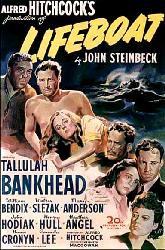 I haven't been feeling well the last few days and thus haven't had an inclination to do much of anything, but ... I did manage to watch a film or two, including Alfred Hitchcock's Lifeboat (1944).
I haven't been feeling well the last few days and thus haven't had an inclination to do much of anything, but ... I did manage to watch a film or two, including Alfred Hitchcock's Lifeboat (1944).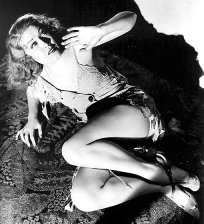

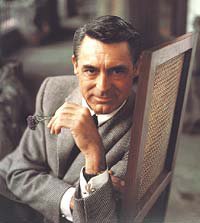
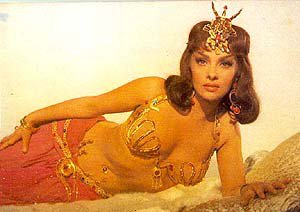

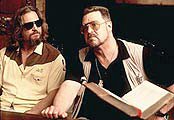

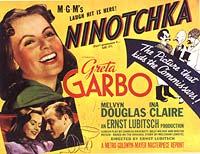
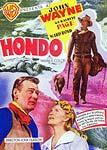
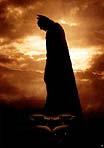

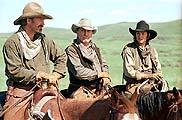
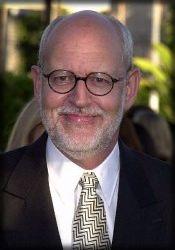
 I loved
I loved  You know, I've always liked this move, this
You know, I've always liked this move, this  I watched
I watched  I've got the four disc
I've got the four disc  I wish I could come up with a clever headline but I can’t. So ... All I want to do, since I don’t have time to write anything worthy of it, is simply say the DVD of
I wish I could come up with a clever headline but I can’t. So ... All I want to do, since I don’t have time to write anything worthy of it, is simply say the DVD of  I just watched
I just watched  As embarassing as this is, I decided I'd post this since it's a review I did some years ago of
As embarassing as this is, I decided I'd post this since it's a review I did some years ago of  I'm not big on double features. So given the glum weather, and my decision to stay in and watch a movie at home, I have to decide which one. The problem is, I can't decide.
I'm not big on double features. So given the glum weather, and my decision to stay in and watch a movie at home, I have to decide which one. The problem is, I can't decide. I don't know why, but whenever I try to fix the lame ass pictures I have of myself I get ones like this ...
I don't know why, but whenever I try to fix the lame ass pictures I have of myself I get ones like this ... This film is odd, which I suppose is to be expected given that it is based on a Tennessee Williams play of the same name. The story is bizarre and horrific and fascinating. But the end result of
This film is odd, which I suppose is to be expected given that it is based on a Tennessee Williams play of the same name. The story is bizarre and horrific and fascinating. But the end result of  The story and the language are riveting. However, at times they are tedious.
The story and the language are riveting. However, at times they are tedious.  Those words ("You never had a camera in my head"), I think, capture the essence of
Those words ("You never had a camera in my head"), I think, capture the essence of 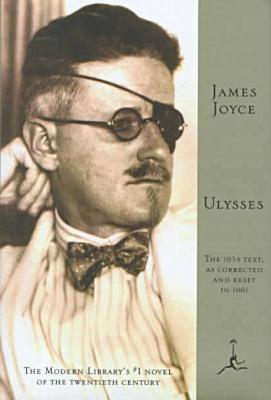
 A favourite film of mine, and one of the best - if not the best - of the 1990's, is Peter Weir's
A favourite film of mine, and one of the best - if not the best - of the 1990's, is Peter Weir's  If you're a fan of the films of Preston Sturges, you'll be happy to know
If you're a fan of the films of Preston Sturges, you'll be happy to know  I just watched 1972's
I just watched 1972's  I've just re-posted some reviews I did a while back of three older movies, all of which are thoroughly enjoyable - at least in my books. They are:
I've just re-posted some reviews I did a while back of three older movies, all of which are thoroughly enjoyable - at least in my books. They are: Well, I'm excited. Set for release on November 22, 2005 -
Well, I'm excited. Set for release on November 22, 2005 -  Okay ... so I just watched
Okay ... so I just watched  So two movies are out tomorrow on DVD and in both cases I want to see them but I don't want to see them. Very curious.
So two movies are out tomorrow on DVD and in both cases I want to see them but I don't want to see them. Very curious. Here's the e-mail I sent the clowns at Universal regarding
Here's the e-mail I sent the clowns at Universal regarding  There's an
There's an  On the other hand (and on the subject of douple dips),
On the other hand (and on the subject of douple dips),  I really wanted to like this movie. It's an old John Wayne film, it has come out in a new special edition, restored and remastered and ... well, I was just ready to see an older movie. I was primed.
I really wanted to like this movie. It's an old John Wayne film, it has come out in a new special edition, restored and remastered and ... well, I was just ready to see an older movie. I was primed. Let's be honest: this is a nothing post. But I have to say I'm extremely happy because I've finally picked up
Let's be honest: this is a nothing post. But I have to say I'm extremely happy because I've finally picked up 

 I’ve fallen behind in quite a few things this week but I thought it worth taking a moment to point out a few William Powell things, such as a
I’ve fallen behind in quite a few things this week but I thought it worth taking a moment to point out a few William Powell things, such as a 


 I just watched
I just watched